Editor's note: We are grateful for the opportunity to post this interview from
Culturebot prior to Magda & Chelsea's FringeArts performances.
I saw zany performance art duo Magda & Chelsea perform their Vulgar Early Works at JACK in Brooklyn in the fall, and it left a major impression. I meant to write a recap/review but never did (bad Elena!), so I decided to interview them in advance of their Vulgar Early Works going up as part of the Studio Series at FringeArts in Philly this weekend (catch it Thursday 2/19 and Friday 2/20 at 7pm, and Saturday 2/21 at 8pm). I sent some questions over email, and they responded without reading each other’s answers.
Read below about vulgarity-as-life-force, Magda’s drawn-on beard, and their future lives as indie film stars crushing tangerines between their breasts.
Elena Light: You're some of the only "emerging/early-career/whatever" artists I know who have a long-term artistic collaboration (rather than just for one project). How did you start working together?
Chelsea Murphy: We started working together at the Headlong Performance Institute in Philadelphia in 2012. For the program you have to make a final piece and we decided to collaborate on it together.
Magda San Milan: Well I’m always like: it was random and Chelsea is always like: she knew she wanted to work with me from the beginning. But seriously. We had to do a final showing as part of our semester at the Headlong Performance Institute. I was rebelling and questioning the point of having an end product. The training was so much about process and I wanted to be purist about it. I was sick of the final showing as proof. It changes the process too much because you know you are going to perform something and you start making from that expectation. So I was telling our teacher, Andrew: I’m not sure I’m even going to make a piece. And he said: why don’t you work with Chelsea, since she has a dance background? And so I did what he said. We had a couple rehearsals together and started getting hot about this idea of a “failed rebel.” Someone who wants to rebel against society and whatnot, who screams a lot, who seems really angry, but who is afraid to jaywalk and calls their mom regularly. Once we had that idea I was down with the show, and all the shows that followed.
EL: How do you make stuff as a pair?
CM: We make stuff together in lots of different ways. One of our favorite places to start is with an "idea bootcamp" which was a technique we developed on a retreat at Silo last year. It forces each person to make proposals and follow impulses no matter how silly they seem. In this way new things will come into the space. We try to work with "the thing that is actually happening". This means the moment or quality or feeling we decide to focus on may not be the focus of the assignment at all. It might be the way Magda is moving her body while she speaks or the way that I casually have my hands in my pants while ranting. We act as magnifying glasses for each other’s work. Pointing out and focusing on new things until something hopefully unique and interesting is crafted. Often we stand next to each other and rift vocally or with movement on an idea or something that made us laugh. If we're laughing so hard that we can't even do the thing, then it is going in the piece. If something seems really scary and makes us feel shame, we often put that in the work as well.
MSM: We get in a room together and stuff happens. Ha, just kidding. I have the impish impulse to answer all of these questions in a defensive way, and then have a scenario where you counter-attack me, and the whole interview becomes a really aggressive argument. Ah, fantasies. Part of the assumption-motor of our process is that anything we are personally interested in (thematically, artistically etc.) is valid in performance. So we come into rehearsal as our full selves and see what gels. There is not a lot of predetermined material or even rehearsal structure. Because we spend so much time together outside of the rehearsal room there is a constant dialogue about art and life. So chances are I know something that Chelsea is mulling over in her day-to-day way and if there is a lull I can suggest: well why don’t we start from the experience of shame because you mention that a lot?
EL: I creeped on you guys and know you both trained at Headlong. How does that training influence your work?
CM: Where does the influence of that training end! Ugh. Headlong is our family. Our moms and dads. They preach collaboration and healthy lives for artists. They teach how to find your own creativity and process and not specific techniques. In this way you are constantly searching, exploring with curiosity your own identity and voice. I think probably I will be doing that for the rest of my life, hopefully. We practiced a lot with presence. What is your body giving off when you are on stage, and is it doing what you think it is doing. We play with this a lot in our work. Also they teach wonderful, productive, sharp and supportive ways of giving feedback and looking at work. That may be the most important influence on my life.
MSM: I made this Headlong slogan in my head: “Tough on ideas, gentle on people.” Oh, I made another one too: “Headlong, so you think you can THINK?” My time at HPI was very healing. I come from a background of much art made with no money. I have seen the cost on the people who make that sacrifice their careers. Headlong proposes a courageously holistic alternative to this burn out. They argue with the world that you can make a sustainable and livable life for yourself as an artist, and that the ultimate test of your dedication is not your destitution. At the same time they instill a rigor around the process and research behind performance. This combination has proved extremely fruitful for me. Every day, every month I am always scheming about how to make my life easier and my art fuller. And dammit because they don’t mutually exclude each other.
EL: Having seen Vulgar Early Works, I can attest that it is vulgar. What draws you to vulgarity?
MSM: Vulgarity is a direct deep channel into the life force. Let’s all swim in the vulgar stream flowing quickly towards the attainment of our deepest desires! I stumbled upon the definition of the word libido the other day while I was casually PERUSING the dictionary and it has three definitions: 1, all of one’s hopes and desires; 2, the will to live; and 3, sex drive. The will to live is important because it addresses mortality in a way that embraces the reality of death and dying. The process of enacting vibrant, vulgar moments onstage encapsulates all of those states for me. And when I am simultaneously existing in a state of death, fantasy and sex I feel truly liberated and full of life.
CM: Thank you for your attest-ment. Vulgarity for us is a great expression of life force. Which I think is what both of us want out of performing: to express our life force to the highest degree. Vulgarity is beyond anger or gender or performing. It is asking people to be witness to something of the essence of ourselves. Wow, that is more dramatic then I expected it to sound. We were (are) both going through some intense times and were experiencing very distinctly the way that deep sorrow sits next to/with/around/inside of grotesque expressions of being alive. The combination of these two emotions for us = vulgarity. Also it is possible that the word may be more appropriate as “libido” but it doesn’t sound as good.
Read the rest of the interview at Culturebot
here.
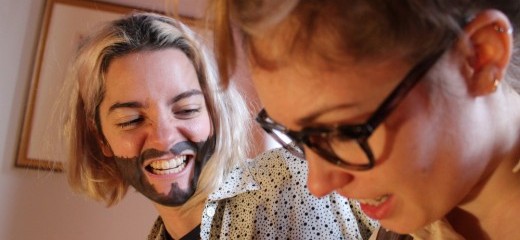

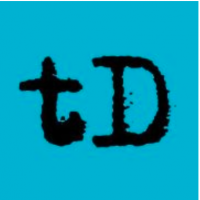
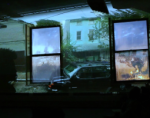
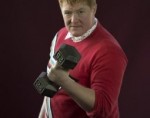
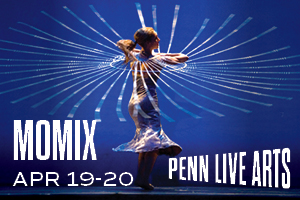
.png)


